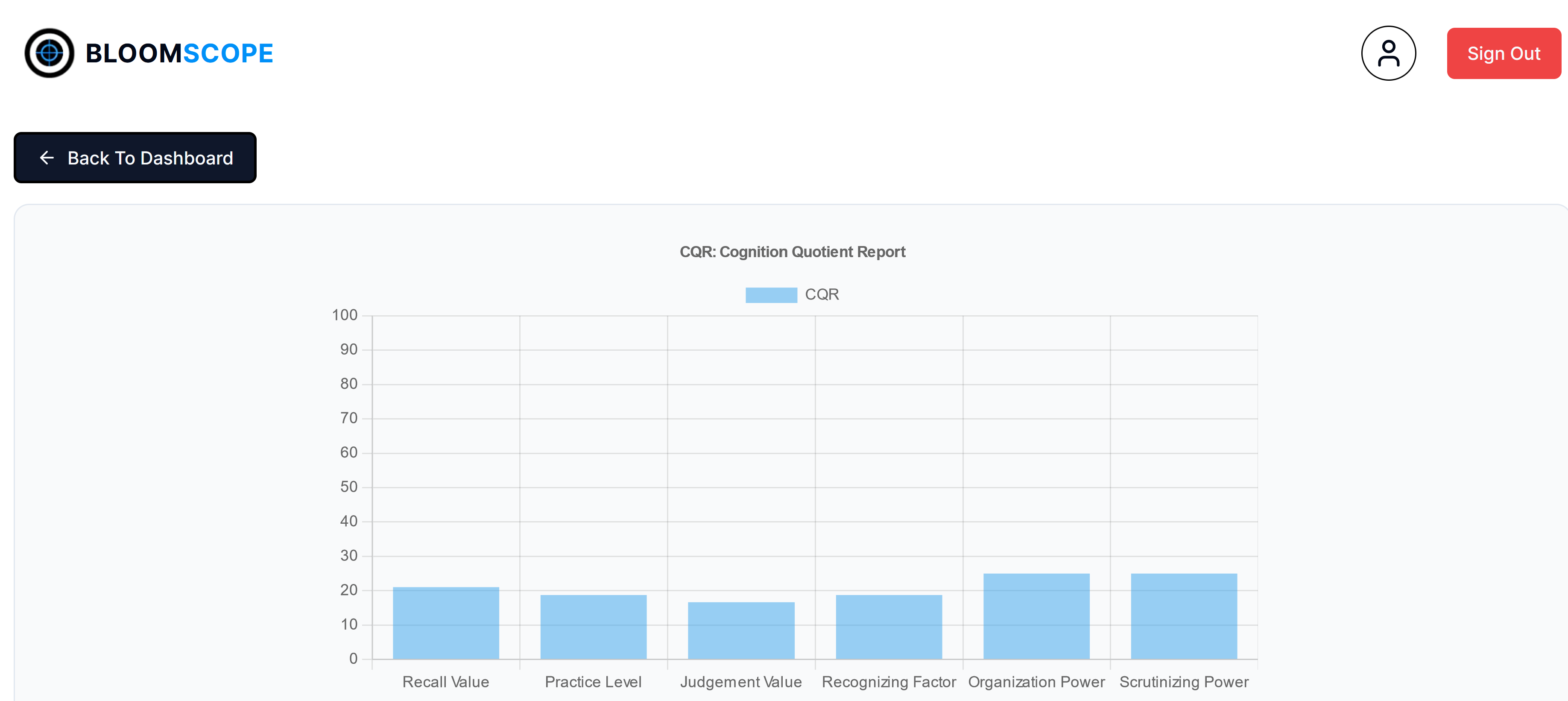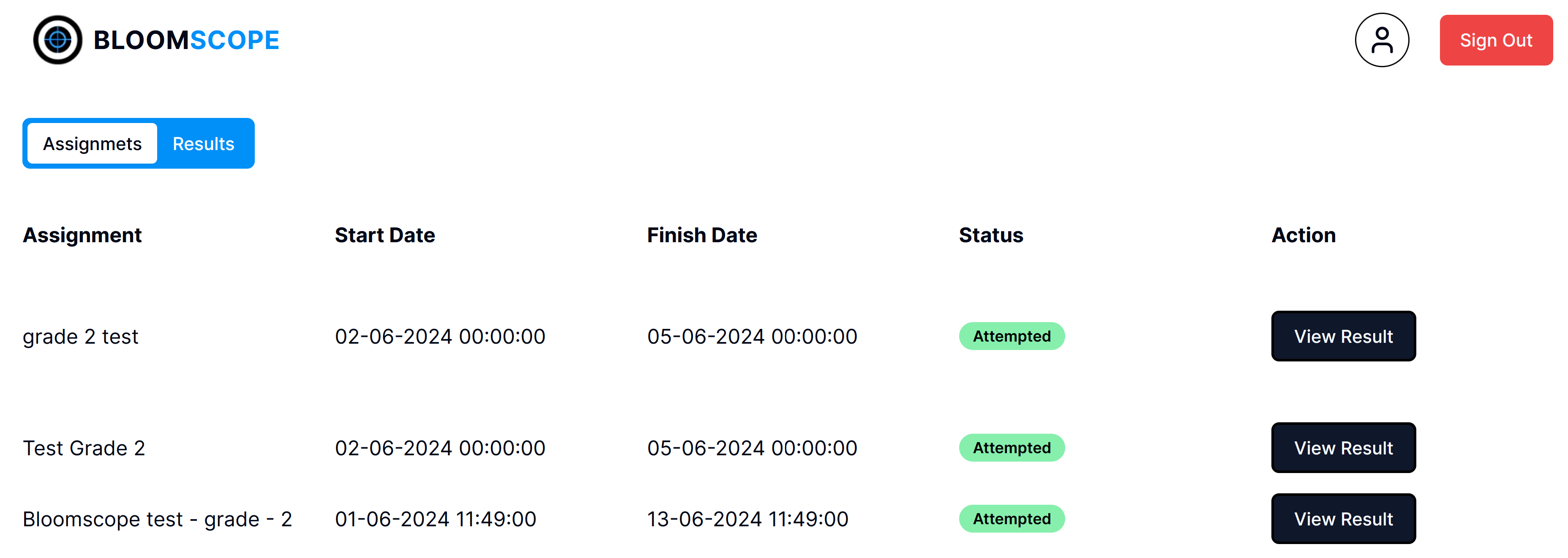Bloomscope
BloomScope is an EdTech assessment platform designed to provide a more holistic understanding of student learning, particularly in primary mathematics. Traditional assessments often focus solely on correct answers, failing to pinpoint specific areas where students struggle within the learning process. BloomScope addresses this by mapping each question in its database to six distinct cognitive levels inspired by Bloom’s Taxonomy of Educational Objectives: recall, recognition, scrutiny, practice, judgment, and originality. This allows the platform to generate detailed scorecards illustrating not only overall performance, but also individual strengths and weaknesses within these cognitive domains. This granular analysis enables educators to tailor their teaching strategies to better address specific student needs and foster a deeper understanding of mathematical concepts
Traditional student assessments, relying on scorecards for subject knowledge, IQ, and EQ, fail to provide a comprehensive understanding of actual learning and life-skill development. These assessments often lack a holistic perspective, neglecting the cognitive, affective, and sensory domains crucial for well-rounded growth. Current methods fall short in identifying specific areas where students struggle within the learning process, hindering targeted interventions. This lack of granularity prevents educators from understanding whether a student’s low performance stems from conceptual misunderstanding, application difficulties, or recall issues. Existing products mapping assessment questions to learning levels typically assign only one level per question, oversimplifying the complex interplay of skills involved in solving even basic problems. This absence of a nuanced evaluation system restricts the development of personalized learning paths and limits insights into a student’s true potential.
- Introduction to the Novel Assessment Platform: Introduces a novel assessment platform that utilizes a six-level learning framework, moving beyond traditional Bloom’s Taxonomy, to provide a more comprehensive understanding of student learning progression. This framework incorporates recall, recognition, scrutiny, practice, judgment, and originality, allowing for a nuanced evaluation of student performance beyond simple right or wrong answers.
- Detailed Mapping of Questions Across Learning Levels: Each question in the platform’s assessment bank is meticulously mapped across the six learning levels, indicating the percentage each level contributes to solving the problem. This unique feature enables educators to pinpoint specific areas where a student might be excelling or struggling within the learning process, facilitating targeted interventions and personalized learning strategies.
- Future Developments & Dynamic and Personalized Assessments: The platform is being developed to offer dynamic, personalized assessments, allowing for varied question sets and adaptive testing based on individual student progress. This dynamic approach ensures that assessments accurately reflect each student’s evolving understanding and mastery of the subject matter.
It is a software platform based on Python, designed to assess learning progression in elementary school mathematics. It utilizes a question bank categorized by grade level, where each question is meticulously mapped across six learning parameters: recall, recognition, scrutiny, practice, judgment, and originality. This detailed mapping enables the platform to generate student scorecards that go beyond conventional quantitative grading by identifying specific areas where a student excels or requires further attention. The software then suggests tailored learning interventions and tools based on individual student needs.
This innovative educational assessment platform aims to revolutionize learning by moving beyond traditional quantitative and qualitative evaluations. The detailed analysis allows educators to identify specific areas where a student may be struggling and tailor interventions to address those needs, ultimately promoting a deeper understanding of the subject matter and fostering a more positive learning experience. This has the potential to improve academic performance and promote greater confidence and interest in STEM fields, ultimately contributing to a more equitable and inclusive educational landscape.
Primary target is the education sector, specifically primary education with a focus on mathematics. While currently focused on primary mathematics, the platform’s adaptability to different grade levels and subjects, including potential integration of open-ended questions, suggests broader application across K-12 education and potentially higher education. Moreover, the technology’s diagnostic capabilities and focus on learning processes could extend its utility to corporate training and development programs, enabling personalized learning pathways and targeted skill enhancement for employees.


